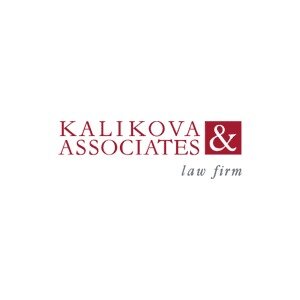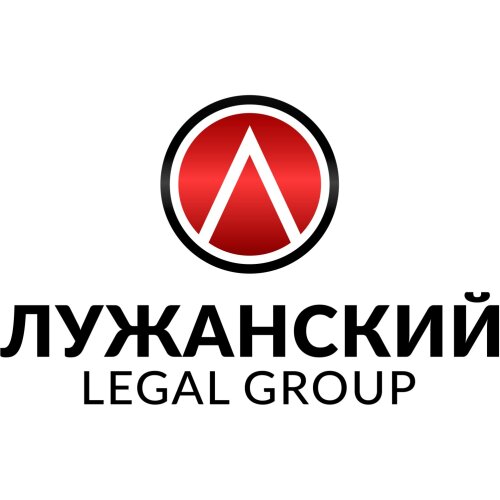Best Banking & Finance Lawyers in Kyrgyzstan
Share your needs with us, get contacted by law firms.
Free. Takes 2 min.
Or refine your search by selecting a city:
List of the best lawyers in Kyrgyzstan
About Banking & Finance Law in Kyrgyzstan
Banking and finance play a crucial role in the Kyrgyz economy, with various laws and regulations governing these sectors. These laws aim to ensure the stability and integrity of the financial system, protect consumers, and promote economic development.
Why You May Need a Lawyer
Individuals or businesses may require legal assistance in banking and finance for various reasons, such as negotiating loan agreements, resolving banking disputes, dealing with bankruptcy or insolvency issues, or seeking advice on compliance with financial regulations.
Local Laws Overview
In Kyrgyzstan, the banking and finance sector is regulated by the National Bank of the Kyrgyz Republic and governed by laws such as the Law on National Bank, Law on Banks and Banking, Law on Licensing, and Law on Securities Market. These laws cover aspects such as licensing requirements, consumer protection, anti-money laundering regulations, and capital adequacy standards for financial institutions.
Frequently Asked Questions
1. What are the licensing requirements for banks in Kyrgyzstan?
Banks in Kyrgyzstan must obtain a license from the National Bank to operate legally. The licensing process involves meeting capital requirements, submitting necessary documents, and undergoing a thorough review by the regulatory authority.
2. How can I protect my rights as a consumer of financial services?
Consumers of financial services in Kyrgyzstan are protected by laws that require banks to provide clear and transparent information, adhere to fair lending practices, and resolve disputes through mechanisms such as the Financial Ombudsman.
3. What are the regulations regarding anti-money laundering in Kyrgyzstan?
Kyrgyzstan has strict anti-money laundering regulations that require financial institutions to implement Know Your Customer (KYC) procedures, report suspicious transactions, and comply with international standards set by bodies such as the Financial Action Task Force (FATF).
4. How can I challenge a banking decision that I disagree with?
If you disagree with a banking decision in Kyrgyzstan, you may seek legal recourse through the court system. A lawyer can assist you in preparing a case, presenting evidence, and arguing your position effectively.
5. What are the rights and obligations of shareholders in financial institutions?
Shareholders of financial institutions in Kyrgyzstan have rights such as voting at shareholder meetings, receiving dividends, and inspecting company records. They also have obligations to comply with laws and regulations, act in the best interest of the company, and avoid conflicts of interest.
6. How can I ensure compliance with securities regulations in Kyrgyzstan?
To ensure compliance with securities regulations in Kyrgyzstan, you should seek legal advice on issues such as securities registration, disclosure requirements, insider trading rules, and investor protection measures.
7. What are the consequences of non-compliance with banking and finance laws in Kyrgyzstan?
Non-compliance with banking and finance laws in Kyrgyzstan can result in penalties, fines, license revocation, civil liabilities, and even criminal charges. It is essential to seek legal advice to avoid legal repercussions.
8. How can I navigate bankruptcy or insolvency proceedings in Kyrgyzstan?
If you are facing bankruptcy or insolvency in Kyrgyzstan, a lawyer can help you understand your options, negotiate with creditors, file for bankruptcy, or restructure your debts to achieve a favorable outcome.
9. Are there alternative dispute resolution mechanisms available for banking and finance disputes?
Yes, in Kyrgyzstan, alternative dispute resolution mechanisms such as mediation and arbitration are available for resolving banking and finance disputes. These methods can be quicker, cost-effective, and less adversarial than traditional litigation.
10. How can I stay updated on changes in banking and finance laws in Kyrgyzstan?
To stay updated on changes in banking and finance laws in Kyrgyzstan, you can subscribe to newsletters from regulatory authorities, follow legal updates from reputable sources, attend training sessions or seminars on financial regulations, and seek advice from legal professionals specializing in banking and finance.
Additional Resources
For further information on banking and finance in Kyrgyzstan, you can visit the website of the National Bank of the Kyrgyz Republic, the Kyrgyz Stock Exchange, or consult with legal organizations such as the Bar Association of the Kyrgyz Republic.
Next Steps
If you require legal assistance in banking and finance in Kyrgyzstan, consider contacting a qualified lawyer with expertise in financial law. A lawyer can provide you with advice, representation, and support in navigating the complex legal landscape of banking and finance to protect your rights and interests.
Lawzana helps you find the best lawyers and law firms in Kyrgyzstan through a curated and pre-screened list of qualified legal professionals. Our platform offers rankings and detailed profiles of attorneys and law firms, allowing you to compare based on practice areas, including Banking & Finance, experience, and client feedback.
Each profile includes a description of the firm's areas of practice, client reviews, team members and partners, year of establishment, spoken languages, office locations, contact information, social media presence, and any published articles or resources. Most firms on our platform speak English and are experienced in both local and international legal matters.
Get a quote from top-rated law firms in Kyrgyzstan — quickly, securely, and without unnecessary hassle.
Disclaimer:
The information provided on this page is for general informational purposes only and does not constitute legal advice. While we strive to ensure the accuracy and relevance of the content, legal information may change over time, and interpretations of the law can vary. You should always consult with a qualified legal professional for advice specific to your situation.
We disclaim all liability for actions taken or not taken based on the content of this page. If you believe any information is incorrect or outdated, please contact us, and we will review and update it where appropriate.
Browse banking & finance law firms by service in Kyrgyzstan
Kyrgyzstan Attorneys in related practice areas.
Browse banking & finance law firms by city in Kyrgyzstan
Refine your search by selecting a city.











